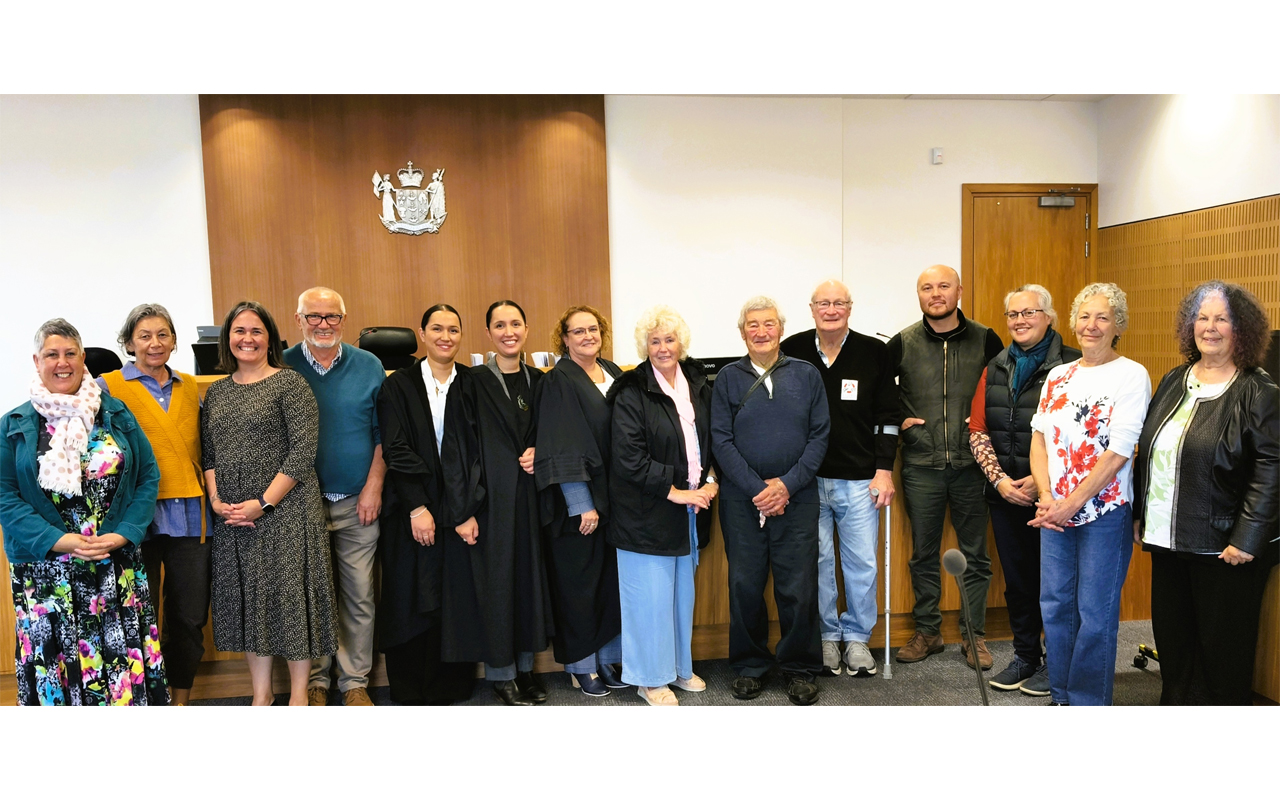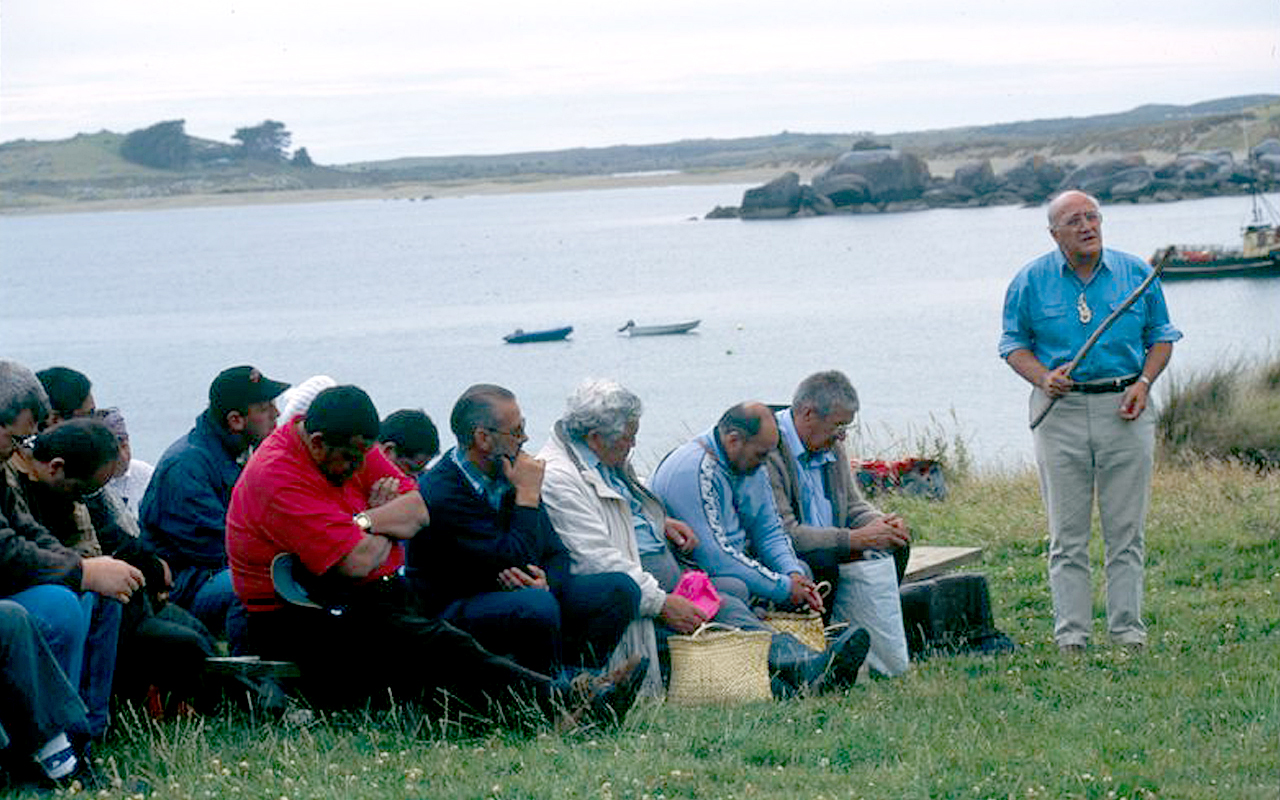Customary marine title confirmed for Ruapuke Island whānau
26 August 2025, 2:22 AM
 Ruapuke Island whānau at the High Court in April 2025. Photo: Supplied
Ruapuke Island whānau at the High Court in April 2025. Photo: SuppliedRuapuke Island whānau are celebrating a landmark High Court ruling on Friday (22 Aug) that confirms their customary marine title over the Foveaux Strait island's surrounding waters under the Marine and Coastal (Takutai Moana) Act 2011.
The Marine and Coastal Area Act 2011, which replaced the contentious 2004 Foreshore and Seabed Act, is currently before Parliament and sets out how Māori customary rights to the marine and coastal area can be legally recognised while preserving public access including fishing and navigation.
Friday's decision follows applications lodged in 2017 by Melvin Cain, Jasmine Stewart, Christian Fife, and Colin Topi, representing descendants of the Kīhau, Topi, and Whāitiri whānau.

Ruapuke Island whānau gather to unveil a commemorative plaque in honour of the legacy of Tuhawaiki, 1996. Photo: Supplied
Rick Fife, of the Topi whānau, said the decision confirmed the significant relationship whānau have to the Ruapuke Island Group, in Te Ara a Kiwa/Foveaux Strait.
"Our application was about recognising the area that our whānau has used, protected, and had authority over for generations."
"Today’s decision ensures that this mahi will continue, for the generations that follow,” Fife said.
Ailsa Cain, of the Kīhau whānau, said the decision reaffirmed something that has never been lost – our relationship with the water – and recognises what our kaumātua and tīpuna have always known.
Jasmine Stewart of the Whāitiri whānau added that the ruling reaffirmed that the applicant group and their whānau held the area in accordance with tikanga Māori, including ongoing practices of kaitiakitanga, mahinga kai, and rāhui.
The ruling also recognised that Ruapuke whānau had exclusively used and occupied the takutai moana since 1840, with no substantial interruption.

Te Rūnanga o Ngāi Tahu Kaiwhakahaere Justin Tipa. Photo: Supplied
However while Te Rūnanga o Ngāi Tahu Kaiwhakahaere Justin Tipa congratulated the Ruapuke whānau on their achievement, he warned it came at a time when the Government was pushing through legislation that could undermine the decision and also make future recognition much harder to achieve.
“The Ruapuke decision proves the Act already provides a fair and workable pathway for whānau, hapū, and iwi to have their longstanding relationships with the takutai moana recognised."
“The Government’s proposal to raise the bar for applicants undermines that intent. It risks rewriting the rules midway and setting a threshold so high that very few whānau will be able to succeed, no matter how strong their tikanga and whakapapa connections are.”
Te Rūnanga o Ngāi Tahu will continue to pursue its application and oppose reforms that weaken the recognition of Māori rights and responsibilities in the takutai moana, he said.
Submissions on the Bill closed on 15 October last year, with almost 6,700 received. Since then, the Supreme Court clarified the legal test for Customary Marine Title, a ruling the Government paused to consider for eight months before deciding to press on. The legislation is expected to pass by the end of October.
Minister Goldsmith has confirmed the new test would apply retrospectively, including to High Court decisions like Ruapuke which have been delivered since July 2024, Tipa said.
“While the Government has promised $15 million to fund rehearings, New Zealanders should be asking whether rewriting the rules midstream, undermining court decisions, and forcing costly repeat hearings is a fair or responsible use of taxpayer money.”